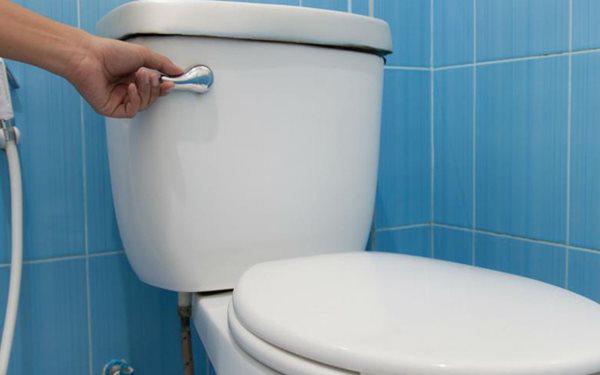private is still good
Do not close the toilet lid when flushing, you accidentally released 80,000 drops that spread bacteria everywhere
The act of rinsing without a lid can cause a lot of bacteria and viruses to spread everywhere. This habit should be eliminated soon to protect the health of the whole family.
A study published by the Faculty of Architecture and Civil Engineering of the City University of London on February 13 showed that toilets can release up to 80,000 droplets. These droplets will remain suspended for 1 meter in the air for hours if the toilet lid is not closed after flushing. This finding also shows that smaller bacteria are capable of flying through the air and latching around to hosts.
Alvin Lai Chi-keung, deputy head of research, said: “When the dirty water splashes are unshielded during flushing, they can stay in the gaps of the toilet and lid. The toilet lid is essential, but it shouldn’t be seen as the only effective precaution.
Alvin says he has no intention of instilling more fear in everyone amid the outbreak of Covid-19. His research began many years ago. He also advises households to clean toilets using diluted bleach regularly, maintain ventilation and close the door if not in use.
His research aims to explore the association between aerosol droplets in the air and pathogens. He discovered that a mechanical stream from the septic tank can produce up to 14,500 drops ranging in size from 0.3 to 10 micrometres. A drain system using valves can release up to 80,000 droplets in the air.
Closing the toilet lid and turning on the toilet vent can help prevent bacteria from spreading
Once again, Alvin emphasized, droplets of contaminated water can follow the airflow that clings to other household items, if the toilets are not cleaned and ventilated regularly. Doing this can prevent the microbial saturation in the air. 87% of airborne pathogens can be eliminated if the toilet has a fan on for 15 minutes. The last 2% of germs will survive in the air if the fan is turned on for another 15 minutes.

